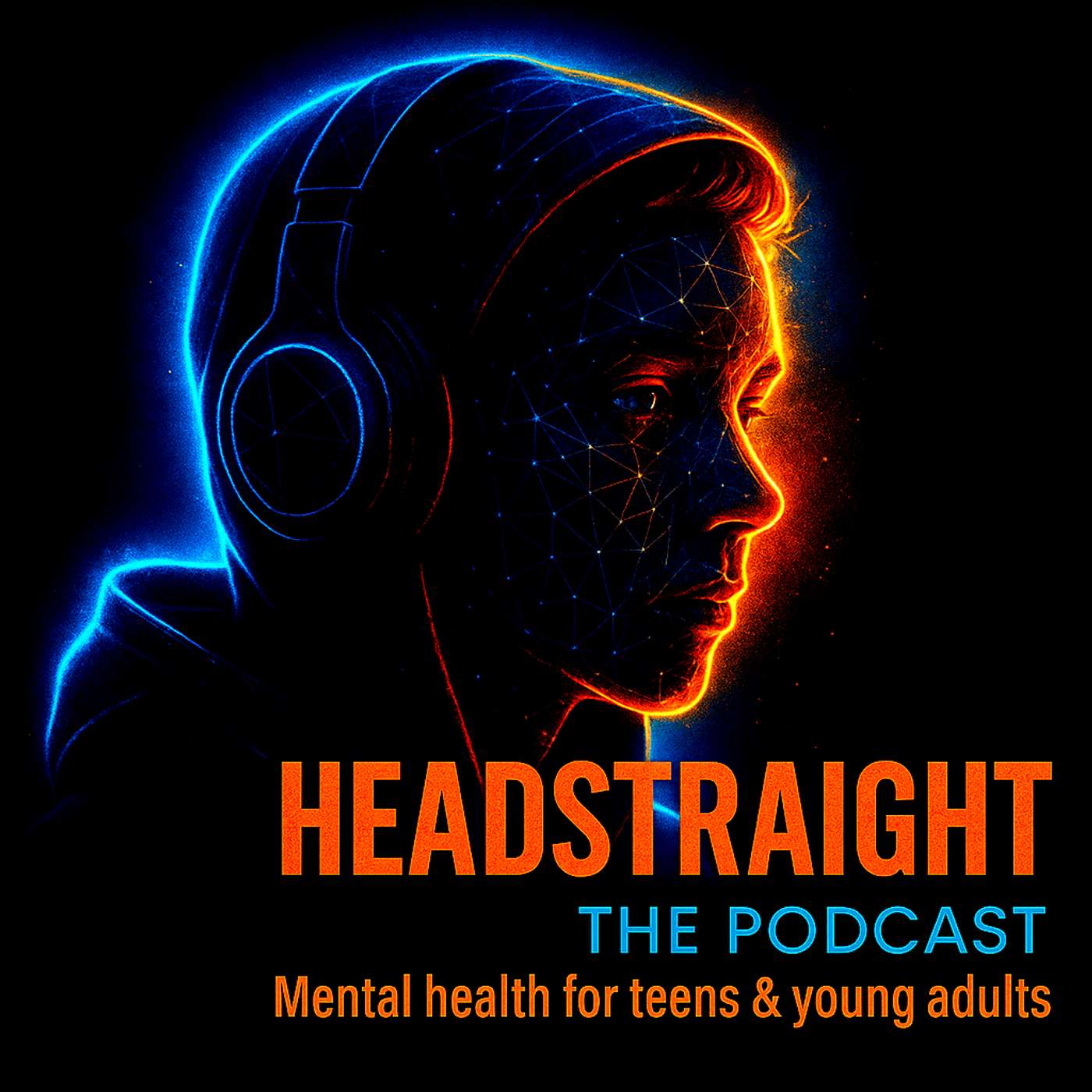How to Set Healthy Boundaries Without the Guilt

We talk a lot about boundaries — especially online.
You’ve probably heard the buzzwords:
“Cut out toxic people.”
“Protect your peace.”
“Learn to say no.”
But here’s the truth: most of us aren’t struggling with the idea of boundaries. We’re struggling with the feelings that come with them — guilt, fear, conflict, shame, awkwardness, self-doubt.
This episode of Headstraight strips it right back.
If you’ve ever:
Said yes when you wanted to say no
Felt responsible for other people’s emotions
Apologised for needing space
Put your own needs last, even when it left you burnt out
Then this one’s for you.
🎧 Listen to the episode here:
Want to listen on your prefered platform?
Boundaries are not a rejection of others. They’re a recognition of yourself.
Let’s get something clear up front:
Setting a boundary doesn’t make you selfish.
It means you’ve realised you’re human. That your time, your energy, your space — they’re not endless. And they’re not owed to everyone.
But that idea can feel threatening — especially if you’ve grown up being rewarded for being easy, agreeable, low-maintenance, or self-sacrificing.
If you were taught to avoid conflict, keep the peace, or put everyone else first, then just the idea of saying “I need…” or “I don’t want to…” can bring up guilt and fear.
But boundaries aren’t about pushing people away. They’re about showing up honestly — and letting others know how to meet you where you are.
Why guilt kicks in
Guilt is sneaky.
You say no to a plan you don’t have the energy for — and suddenly you feel selfish.
You ask for space after a draining conversation — and feel like a bad friend.
You turn down overtime — and wonder if you’re being lazy.
You set a boundary with family — and feel like you’re betraying them.
Here’s what’s really going on:
You’re not guilty. You’re uncomfortable.
You’re stepping out of a pattern that’s kept others comfortable — at the expense of your wellbeing.
And that unease? It’s your nervous system adjusting to something new.
Discomfort doesn’t mean you’re doing it wrong.
It usually means you’re doing something healthier than you’ve ever done before.
How to spot where a boundary is needed
It’s not always obvious. Sometimes, we don’t realise a boundary is missing until we hit emotional burnout.
But your body and mind are always giving you clues.
Ask yourself:
Where do I feel emotionally overdrawn — like I’m giving more than I’m getting?
Who leaves me feeling heavy, resentful, or unseen after time together?
What decisions have I made recently based on guilt or fear instead of choice?
Where am I biting my tongue, saying yes too quickly, or keeping the peace at my own expense?
Where there’s resentment, there’s often a boundary waiting to be named.
How to set a boundary (without turning it into a confrontation)
Boundaries don’t have to be a big dramatic scene. They don’t require shouting or cutting people off. Most of the time, they sound simple and clear:
1. Start with you
Before you open your mouth, get honest with yourself about what you need.
Is it time?
Space?
Clarity?
Distance?
Help?
Respect?
You can’t ask for what you need if you haven’t figured it out yet.
2. Say it clearly — not defensively
Instead of over-explaining, softening it, or asking for permission, try:
“I’m not available this weekend.”
“I’m not comfortable talking about that.”
“I need a bit of time before we carry this on.”
“I can’t keep doing this on my own — we need to share the load.”
You’re not being rude. You’re being real.
3. Prepare for discomfort
The person you’re setting the boundary with might not love it — especially if they’ve benefited from you having none.
But that doesn’t mean the boundary is wrong.
It just means it’s working.
Internal boundaries matter too
It’s not just about what you say to others.
Sometimes the hardest boundaries are the ones you set with yourself.
Turning your phone off when you’re drained
Choosing rest instead of endlessly scrolling
Saying, “I’ve done enough for today”
Stopping yourself from overexplaining, rescuing, or people-pleasing
Giving yourself permission to say, “I don’t owe everyone a version of myself that’s always okay”
These are the boundaries that rebuild self-trust.
They send a message to your own system: I matter, too.
If you’re just starting out…
Here’s what I’d suggest:
1. Choose one small shift
Don’t go in trying to overhaul your life. Pick one situation where you usually give too much — and try giving slightly less.
Maybe it’s:
Not replying to a message straight away
Saying, “I need to get back to you” instead of a reflexive yes
Giving yourself permission to log off early
Saying “No thanks” without explaining why
Start small. Get used to the discomfort. Then keep going.
2. Use a script until your confidence builds
It’s okay if it feels awkward at first. Try something like:
“I’m learning to protect my time more, so I’m going to say no to this.”
“This is new for me, but I need to ask for some space around this.”
“I’m trying to be more honest about what I can and can’t take on.”
Even if your voice shakes — say it anyway. You’re building a new muscle.
3. Have a mantra ready for the guilt
Something like:
“It’s okay to disappoint someone else if it means I don’t betray myself.”
“I’m allowed to say no without being a bad person.”
“Boundaries don’t mean I don’t care — they mean I care about myself, too.”
Write it down. Stick it somewhere visible. You’ll need it — especially early on.
A reminder as Season 1 closes
This is the final episode of Season 1.
And in many ways, it’s the most important.
Because boundaries sit at the heart of all the other things we’ve talked about:
Self-awareness
Accountability
Trust
Communication
Growth
If you’ve come this far — reading, listening, reflecting — don’t underestimate what you’ve done.
You’ve taken the hard step of getting honest with yourself.
You’ve sat with truths that weren’t always easy.
You’ve started to question old patterns that no longer serve you.
That’s the beginning of real change.
So don’t rush to fix everything. Just choose one thing this week that protects your peace — and back yourself when it feels hard.
What’s next
Season 2 of Headstraight is coming soon.
We’ll go deeper — into shame, emotional flashbacks, learned roles, and how to move differently in the world when your wiring tells you to shrink.
But for now?
Give yourself credit.
Take a breath.
And remember: saying no doesn’t make you unkind. It makes you clear.
You’re allowed to take up space.



